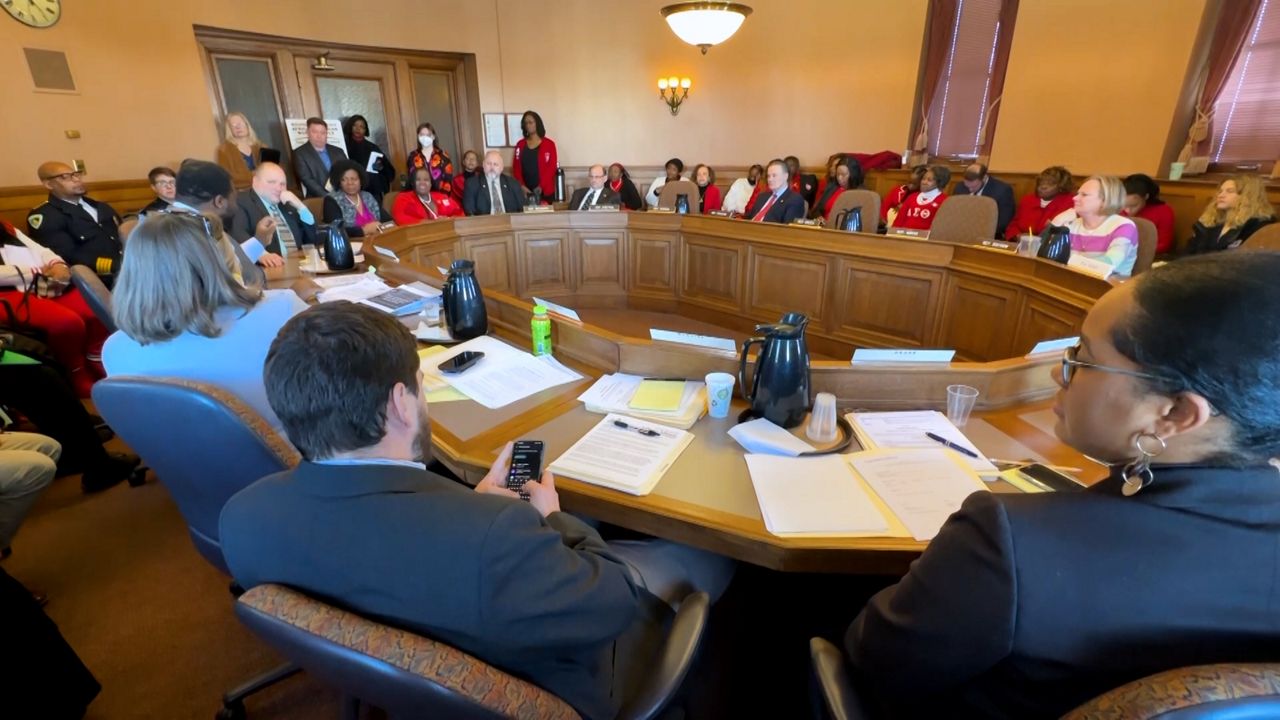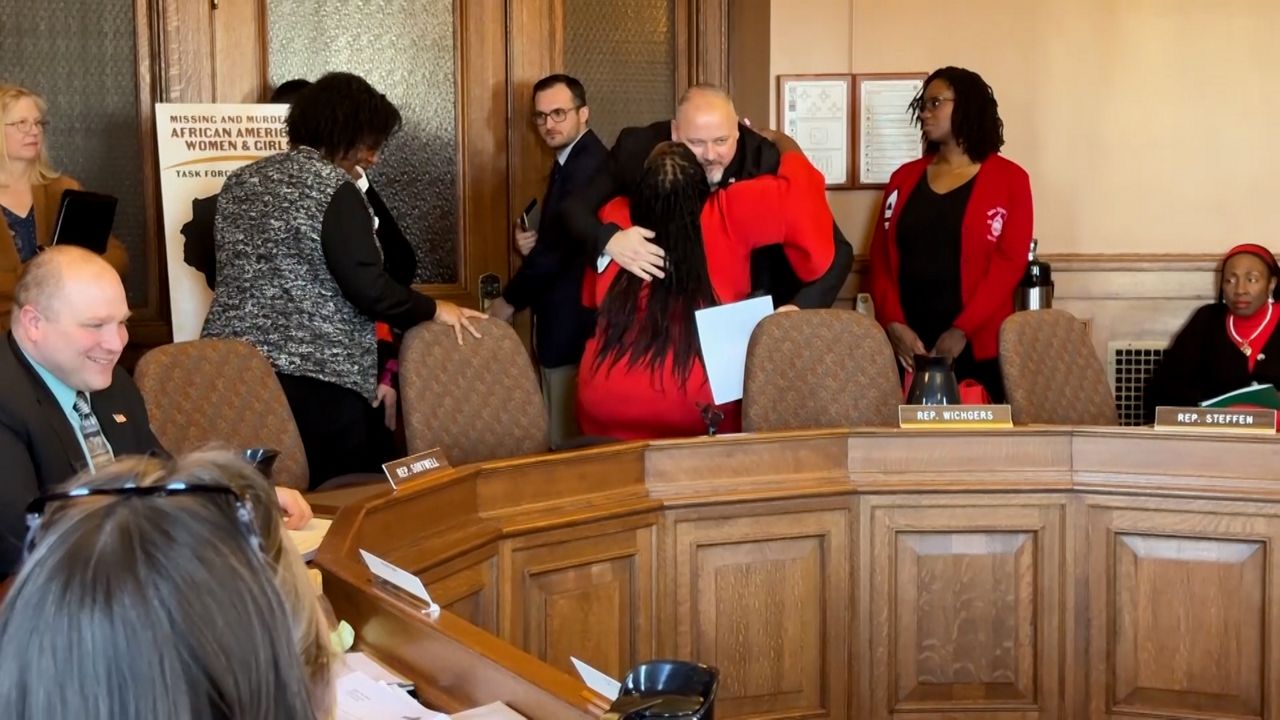MADISON, Wis. — An effort to create a state task force focused on missing and murdered African American women and girls is one step closer to becoming a reality in Wisconsin.
If approved, the proposal would put a report in the hands of lawmakers by the end of the year.
When 46-year-old Lasheky Hill went missing in Racine 10 months ago, her mother Georgia said she felt as though it was treated as a joke, at least at first.
“A mother’s nightmare, that’s what I call it,” Georgia Hill told lawmakers. “I literally watched my child come over to my house that morning, hours before her birthday and leave, and watch my child walk right out of my life and never to be seen again. The Racine Police Department still has my daughter’s case under investigation, but I feel they could have done more. They took me as a joke at first when I called them.”

State Rep. Shelia Stubbs, D-Madison, who has pushed for a new task force for two years, called it a “historic day” in the Capitol after an Assembly committee unanimously approved a bill last week that aims to do more.
“This bill is a voice for women across our state,” Stubbs said. “We will advocate for victims.”
Rep. Stubbs supports spending $30,000 to create and staff a task force through the Dept. of Justice that would submit a report by Dec. 15 and suggest actions lawmakers can take to reduce violence and increase the safety of African American women and girls.
“In 2020, Wisconsin was the state with the highest homicide rate of African American women and girls in our nation,” Stubbs added.
The proposed task force would be made up of 17 members, including lawmakers and community partners, to collect data and provide support to victims and their families. It is a concept similar to another task force launched in 2020 focused on indigenous women.
“The rate of African American femicide nationwide increased by 33% from 2019 to 2020—that struck a chord with me,” State Sen. Jesse James, R-Altoona, explained during a recent public hearing.

Some Republicans, including James, who is the only active law enforcement officer in the Legislature, are backing the bill.
That kind of bipartisanship is something Hill hopes leads to change.
“[There’s] not enough people out here offering help,” Georgia Hill told lawmakers. “We need change in Wisconsin—period.”
The legislation awaits approval from the full Assembly and Senate, which could happen in the coming weeks, with floor period expected to end as early as late February.



